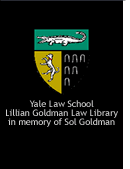
 |
 |
- produced by Wendy Phillips, Megumi Kayaki -Taniguchi and Bijal Shah One of the critical assumptions underlying South Africa’s Truth and Reconciliation Commission was that truth, amnesty and reparation would bring about 'healing' for individuals, and for the nation. However, although reconciliation was a macro theme of the Commission's work, there was no clear apparatus in its structure to help achieve it. There were, for instance, separate committees to uncover the truth, to explore methods of redress for survivors of human rights violations, and to consider amnesty for perpetrators. Yet nowhere in the enabling legislation, the National Unity and Reconciliation Act of 1995, was provision made for a committee on reconciliation or healing. In fact, the only mechanism with which to promote reconciliation was a little-used section of the act enabling the TRC to establish victim-offender mediation processes. Yet, while the TRC had created some opportunity for face-to-face meetings between survivors and perpetrators, this provision of the act was seldom used; perpetrators often did not come forward to face their victims willingly and without the incentive of amnesty. This media presentation examines three instances of victim-perpetrator meetings that did happen, and poses questions such as the following: What are the aspects of reconciliation that heal? Which elements actually cause greater pain for those grappling with the process? Is reconciliation a necessary precondition for healing - or vice versa? And during its lifespan, how did the TRC facilitate both reconciliation and healing in South Africa? The first story presents the meeting between Jeffrey Benzien and Ashley Forbes. Ashley Forbes was an MK Commander who was interrogated and brutalized by Jeffrey Benzien, an officer for the Security Forces of the Nationalist Government. The two came face to face during Benzien's amnesty hearings. Their meeting emphasizes the significance of recognition in the process of healing and reconciliation. During their exchange Benzien claimed not to remember many of his assaults on Forbes, and in some instances challenged Forbes' accusations. Benzien's behavior indicates that he is not only a master manipulator but also the lasting effects of the special relationship between victim and perpetrator. As Forbes reflects on the meeting, he appears willing to forgive Benzien, yet is hesitant because of Benzien's inability to acknowledge and admit fully to all of his acts. Their interaction demonstrates that full disclosure is critical to both the political and emotional healing of the nation. The second narrative focuses on an encounter between an adolescent, Tshidiso Motasi, and perpetrator Paul van Vuuren; van Vuuren was part of a death squad that killed many; among this number were Tshidiso’s parents, murdered when he was six years old. Their meeting emphasizes in general the significance that each killing has had for others community and family members, including the displaced children of murder victims. During the exchange, the dynamic between perpetrator and victim was complicated by the fact that the exchange was also between an adult and a child; van Vuuren was not able to express sorrow, but he could recognize the devastating effect that losing his parents has and will continue to have in Tshidiso’s life. Tshidiso mentioned that he was unable to forgive van Vuuren, but seems to have reached a level of relief or closure by having been given the chance to hear van Vuuren acknowledge the murders of Richard and Irene Motasi. The third account focuses on the face-to-face meeting between those who were victimized and killers at the St. James Church massacre that occurred in 1993, and specifically on the case of Dawie Ackerman, a white man whose wife was killed during the event. In this presentation, Dawie’s spirituality is depicted within the TRC proceedings as well as during his post-meeting reflection. The oft-quoted statement by Ackerman, "How on earth are we going to be reconciled," is simple but has many implications, one of which concerns the difficulty in achieving true reconciliation. In this victim-perpetrator meeting, Ackerman was able to forgive the perpetrators and find closure, but he recognizes that there is still far to go en route to true reconciliation. Finally, Dr. Pumla Gobodo-Madikizela, a social worker, esteemed professor at Harvard University and member of the TRC, notes that the most profound experience of her career with the TRC was witnessing the incredible phenomenon of forgiveness between victims and perpetrators. While Dr. Gobodo-Madikizela emphasizes the positive psychological effect of sincerity and an indication of remorse on victims’ psyches, the desire by many victims to meet their perpetrators was something she had never imagined would happen. However, when she did indeed witness victims reaching out to perpetrators and offering them forgiveness, it became clear to her that the TRC process had far-reaching potential. She emphasizes that there was and still is possibility in the TRC not only for individual victims and perpetrators encountering each other (often for the first time), but also for the potential construction of a model that can unite groups of people struggling with a history of conflict. |
|
Biographies Wendy Phillips Wendy is a member of the Yale Law School Class of 2007. She graduated from Princeton University in 2000 with a degree in Psychology. She obtained her Masters in Public Health, concentrating in Health Policy and Management from the Yale School of Public Health in 2004. At Yale, she is an editor for the Yale Law and Policy Review as well a member of the Black Law Students Association. Wendy will spend the summer of 2005 working for the Legal Resources Centre in Johannesburg.
Megumi Kayaki-Taniguchi Megumi is a member of the Yale Law School Class of 2005. She is a LL.M. candidate from Tokyo, Japan. She graduated from Hitotsubashi University, Faculty of Law in 2000 with a LL.B. in Japanese Constitutional Law. She obtained her LL.M. in Public International Law from Hitotsubashi University Graduate School of Law in 2002 and is currently a LL.D. candidate there. Her keen interest in the protection/promotion of human rights both domestically and internationally has led her to pursue further studies at the University of Birmingham, Faculty of Law ( Birmingham, U.K.) and the United Nations University ( Tokyo, Japan). Megumi is presently a recipient of the Fulbright Grant for her studies at Yale.
Bijal Shah Bijal is a member of the Yale Law School Class of 2006. She graduated from Brandeis University in 2001 with degrees in Philosophy and Psychology. She is also a joint degree candidate for a Masters in Public Policy at Harvard University’s Kennedy School of Government. At Yale, she is a senior editor for the Yale Law Journal as well a member of the South Asian Law Students Association and the LGBT Law Students Association. Bijal worked for the United Nations in Yaoundé, Cameroon and on the Tchad/Sudanese border during the summer of 2004. She will spend the summer of 2005 working for the Lawyer’s Committee for Civil Rights in San Francisco and for Hong Bang, a grassroots human right organization headquartered in Ho Chi Minh City, Viet Nam. |
|
| Return to Multimedia Page | List of Websites | Bibliography |
|